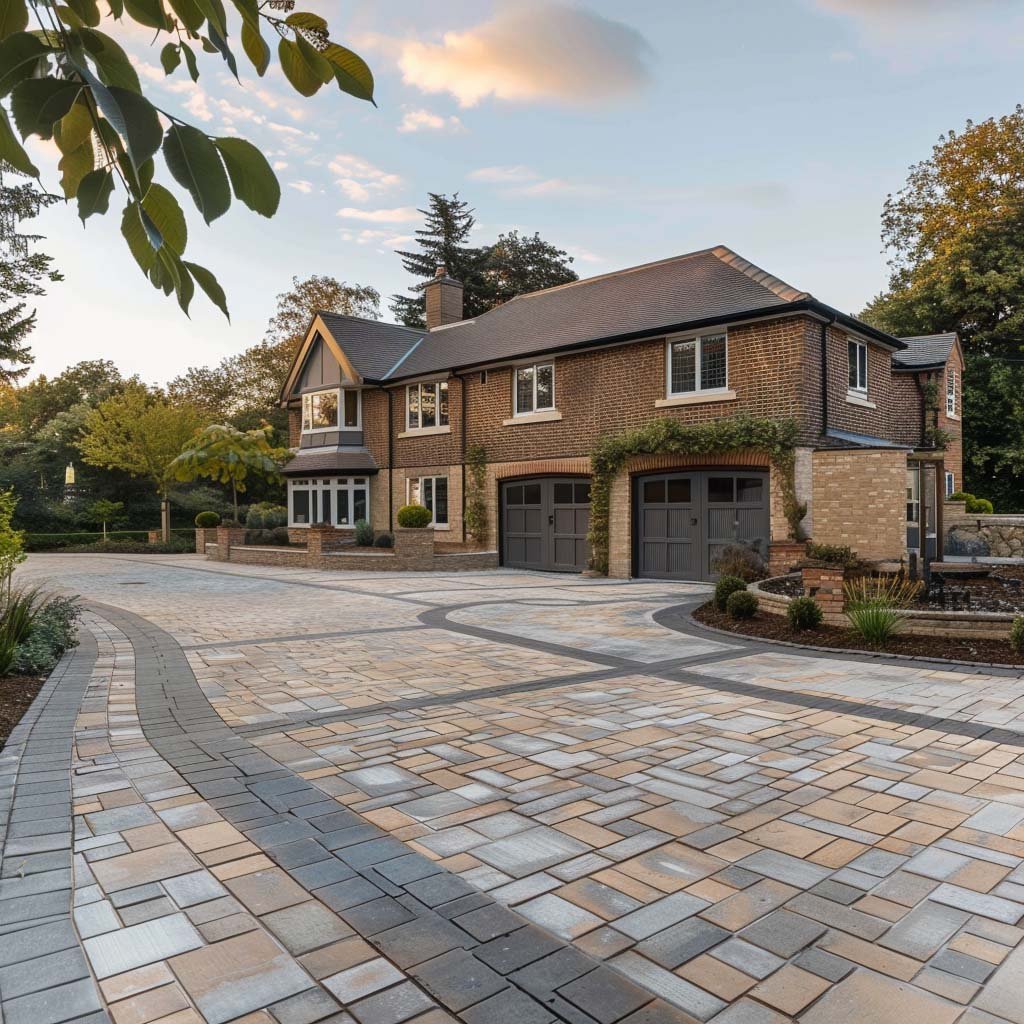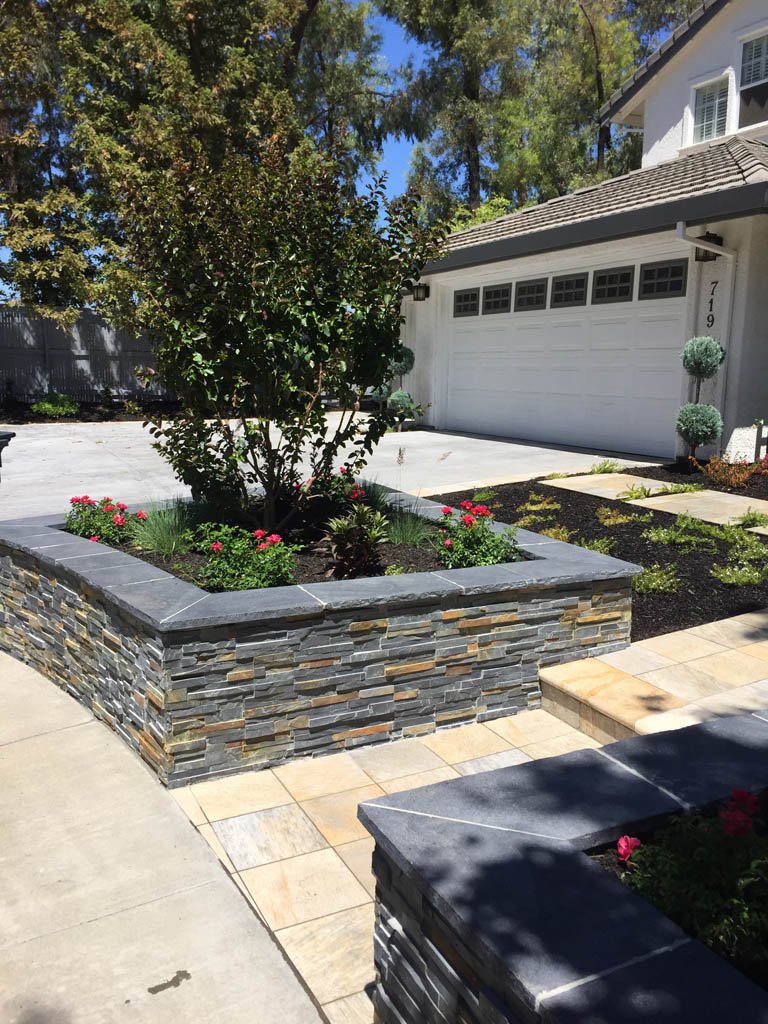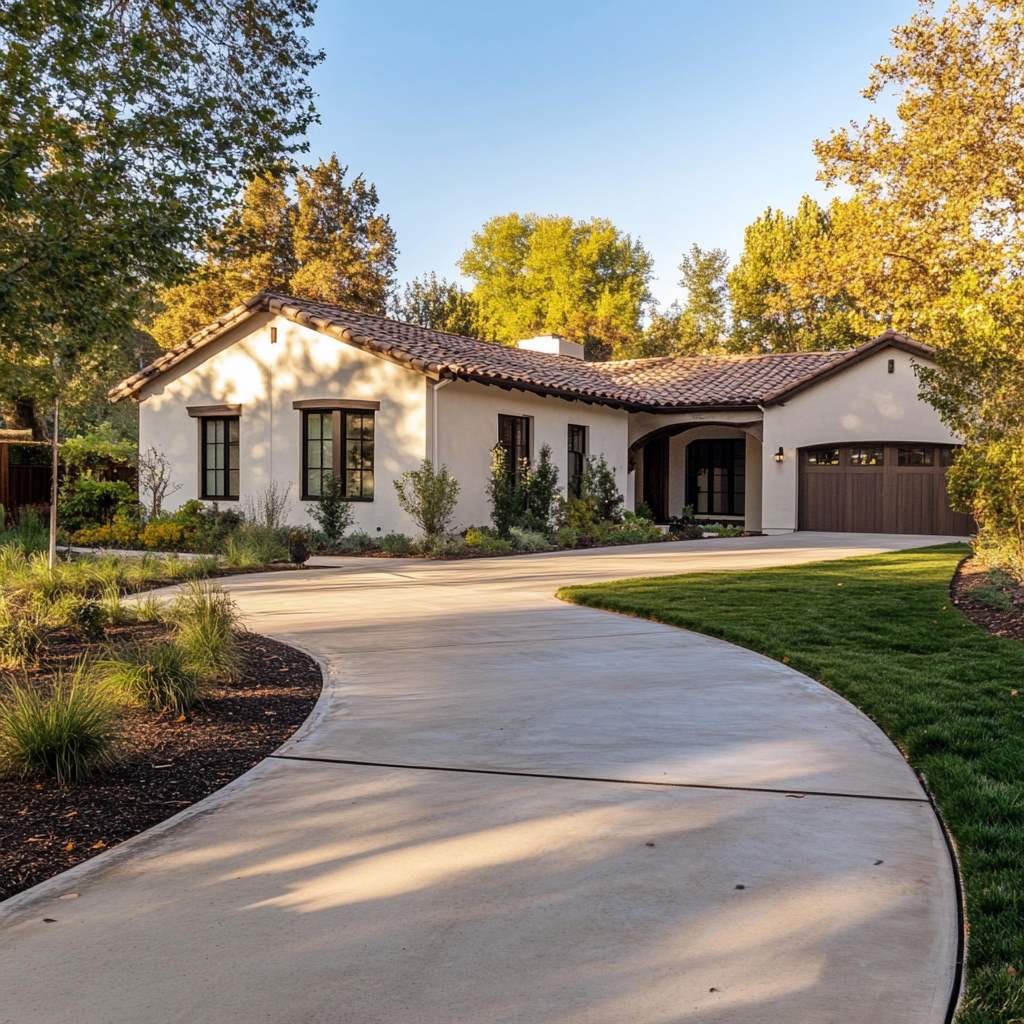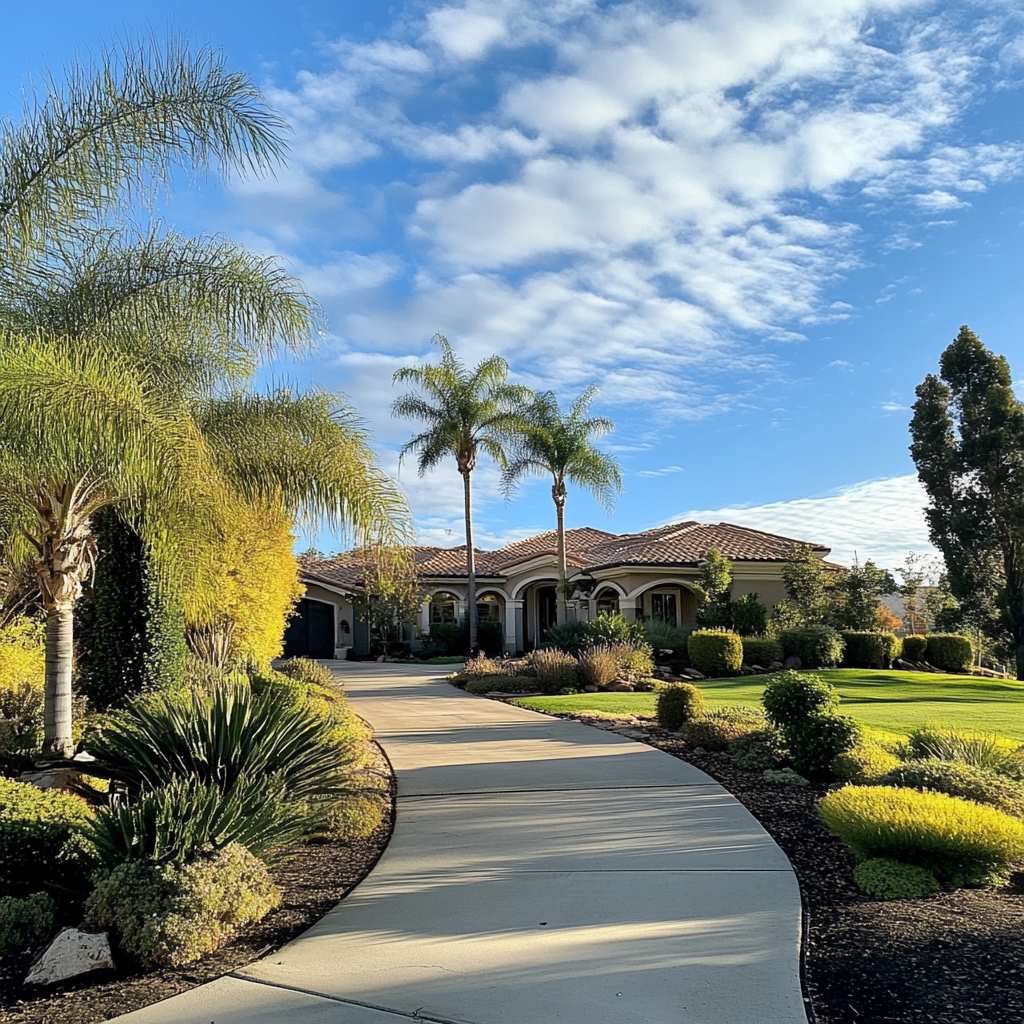What’s the best choice for your Sacramento home or business: a concrete or asphalt driveway? Choosing the right material for your driveway is more than just a practical decision; it’s an investment that affects your property’s curb appeal, functionality, and long-term value. South Canyon Construction will help with understanding the differences between concrete and asphalt can help you select a driveway that fits both your style and practical needs.
Concrete vs. Asphalt Driveways

When deciding between a concrete and an asphalt driveway, it’s essential to understand the key differences in terms of durability, cost, and maintenance.
Durability: Both concrete and asphalt are durable materials, but they react differently to weather conditions and wear over time. Concrete is known for its longevity and can last 30 years or more with proper care. Asphalt, while sturdy, typically has a lifespan of about 15–20 years.
Cost: The initial installation cost is often a significant factor. Asphalt generally has a lower upfront cost, ranging from $3 to $5 per square foot, making it a budget-friendly option. Concrete is more expensive initially, usually costing between $5 and $10 per square foot.
Maintenance: Maintenance requirements vary between the two materials. Asphalt driveways require more frequent upkeep, including sealing every 3–5 years and prompt repairs of cracks and potholes. Concrete driveways require less frequent maintenance but can be more expensive to repair when issues arise.
Understanding these fundamental differences sets the stage for a more detailed comparison, especially considering Sacramento’s unique climate and environmental factors.
Durability in Sacramento’s Climate

Concrete Driveways: Concrete handles heat exceptionally well, maintaining its structural integrity even during Sacramento’s hottest months. The material’s resistance to high temperatures means it doesn’t soften or become pliable. However, concrete can be susceptible to cracking under extreme temperature fluctuations. Fortunately, Sacramento’s relatively stable climate reduces this risk, making concrete a durable choice for the area.
Asphalt Driveways: Asphalt tends to absorb heat due to its dark color, which can lead to softening in high temperatures. During Sacramento’s hot summers, asphalt driveways may become pliable, leading to indentations or rutting, especially under heavy vehicle loads. This softening can accelerate wear and reduce the lifespan of the driveway.
Which material holds up best in these weather conditions? Given Sacramento’s climate, concrete driveways generally offer better durability. They resist heat-related issues more effectively than asphalt, resulting in fewer repairs and a longer lifespan.
Short-Term vs. Long-Term Investment
Financial considerations play a significant role in choosing between concrete and asphalt driveways.
Initial Installation Costs:
- Asphalt Driveways: The lower upfront cost of asphalt, typically ranging from $3 to $5 per square foot, can be appealing for those on a tight budget.
- Concrete Driveways: With costs between $5 and $10 per square foot, concrete requires a higher initial investment.
Longevity and Value Over Time:
- Asphalt Driveways: While cheaper initially, asphalt driveways generally last about 15-20 years and may incur higher maintenance costs over time.
- Concrete Driveways: Despite the higher upfront cost, concrete driveways can last 30 years or more, offering better value in the long term due to their durability and lower maintenance needs.
Which one gives you the most value over time? If you’re planning to stay in your property for many years, investing in a concrete driveway may provide greater long-term value, offsetting the higher initial cost with its longevity and reduced maintenance expenses.
Maintenance Requirements

Maintenance is a important aspect that affects both the appearance and lifespan of your driveway.
Asphalt Driveways:
- Frequency of Maintenance: Require sealing every 3–5 years to protect against the elements and extend their lifespan.
- Common Issues: More susceptible to cracking and potholes, especially in hot climates like Sacramento’s.
- Repair Costs: Generally lower repair costs, but the frequency of repairs can add up over time.
Concrete Driveways:
- Frequency of Maintenance: Require less frequent maintenance compared to asphalt.
- Common Issues: Prone to staining from oil or chemicals, and repairs can be more costly when cracks or damage occur.
- Aesthetic Maintenance: Stains and discoloration are more visible and may require professional cleaning or sealing.
Maintenance Tips for Sacramento Residents:
- For Asphalt Driveways:
- Schedule regular sealing to protect against heat damage and oxidation.
- Promptly fill cracks to prevent water infiltration and further deterioration.
- For Concrete Driveways:
- Apply a protective sealant to guard against stains and surface wear.
- Clean spills immediately to maintain appearance and prevent staining.
By adhering to these maintenance practices, homeowners can significantly extend the lifespan of their driveways and keep them looking their best.
Environmental Impact: Which is More Eco-Friendly?
Environmental considerations are increasingly important for many homeowners.
Asphalt:
- Production Impact: Derived from petroleum, a non-renewable resource, and its production involves significant energy consumption.
- Heat Absorption: Dark color contributes to the urban heat island effect by absorbing and radiating heat.
- Recallability: Highly recyclable, with reclaimed asphalt pavement commonly used in new projects.
Concrete:
- Production Impact: Cement production, a key component of concrete, is energy-intensive and contributes to higher carbon emissions.
- Heat Reflection: Lighter color reflects sunlight, reducing heat absorption and potentially mitigating the urban heat island effect.
- Longevity: Longer lifespan can reduce the environmental impact over time due to less frequent replacement.
Benefits of Sustainable Driveway Materials in Sacramento:
- Reducing Heat Absorption: Opting for materials that reflect sunlight can help lower local temperatures during hot summers.
- Recycled Content: Using recycled or locally sourced materials minimizes environmental impact and supports sustainable practices.
When considering the environmental impact, both materials have pros and cons. It’s essential to weigh these factors based on your environmental priorities and consult with professionals about sustainable options.
Aesthetic Appeal and Curb Appeal

Concrete Driveways:
- Design Options: Highly versatile, allowing for stamping, staining, and coloring to mimic the look of stone, brick, or tile.
- Customization: Offers the ability to create unique patterns and finishes that complement your home’s architecture and landscaping.
- Curb Appeal: A well-designed concrete driveway can significantly boost your property’s visual appeal and potentially its market value.
Asphalt Driveways:
- Design Limitations: Typically limited to a standard black finish, offering a uniform but less customizable appearance.
- Repairs Visibility: Patches and repairs are more noticeable due to color variations over time.
- Classic Look: Provides a clean, classic appearance that suits various home styles but lacks the customization options of concrete.
How Driveway Choices Affect Your Property’s Curb Appeal: Selecting a driveway material that complements your home’s style can enhance its aesthetic appeal. Concrete’s versatility makes it a preferred choice for homeowners seeking to make a visual statement, while asphalt offers simplicity and functionality.
Installation Time and Process
The time and process involved in installing your driveway can influence your decision, especially if you’re on a tight schedule.
Concrete Driveways:
- Installation Duration: Typically takes 2–3 days to install, not including curing time.
- Curing Time: Requires up to a week to cure before it’s ready for use, ensuring optimal strength and durability.
- Process Complexity: Involves careful mixing, pouring, and finishing, achieving the desired appearance and structural integrity.
Asphalt Driveways:
- Installation Duration: Generally completed within a day due to faster setting times.
- Ready for Use: Can often be used almost immediately after installation, with minimal downtime.
- Process Simplicity: Quicker installation process, but requires experienced contractors to ensure proper compaction and smoothness.
Factors That May Influence Installation Time for Sacramento Residents:
- Weather Conditions: Extreme heat can affect both materials, potentially delaying installation or affecting the curing process.
- Site Preparation: Additional work such as grading or removing old driveways can extend the timeline.
- Permits and Regulations: Compliance with local Sacramento regulations may require additional time for approvals and inspections.
If minimizing disruption and installation time is a priority, asphalt may be the more convenient option. However, the long-term benefits of concrete might outweigh the short-term convenience for some homeowners.
Which Driveway is Best for Your Sacramento Property?

Choosing between a concrete and asphalt driveway depends on your specific needs, budget, and aesthetic preferences. Consider the following:
- Durability and Climate Suitability: Concrete offers superior durability in Sacramento’s hot climate.
- Cost Considerations: Asphalt has a lower initial cost but may require more maintenance, while concrete is a long-term investment.
- Maintenance Needs: Concrete requires less frequent maintenance, saving time and money over the years.
- Environmental Impact: Both have environmental pros and cons; consider sustainable options within each material.
- Aesthetic Appeal: Concrete provides more design flexibility to enhance curb appeal.
- Installation Time: Asphalt offers quicker installation if time is a critical factor.
Ready to make a decision? Contact South Canyon Construction for a personalized consultation. Our experts will help you choose the perfect driveway material for your Sacramento home or business, ensuring that it meets your functional needs and complements your property’s style.
